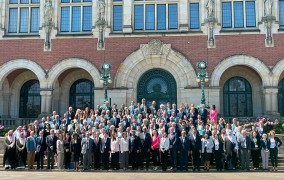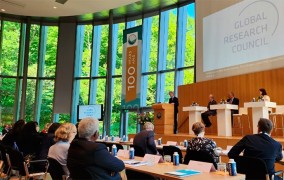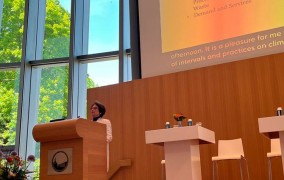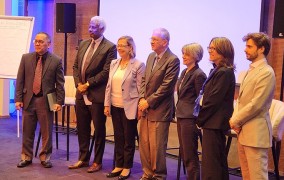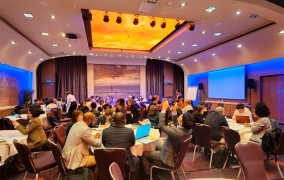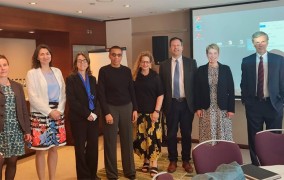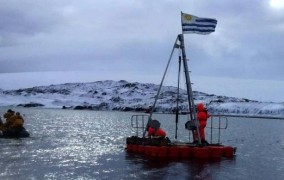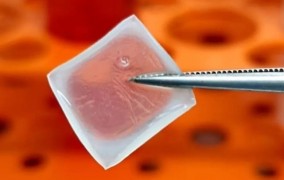
News
-
Projects on adolescent obesity and drinking selected by international consortium
2023-06-07The call was issued in 2022 by the Global Alliance for Chronic Diseases, a transnational consortium of research funders set up to combat chronic non-communicable diseases in low- and middle-income countries. Two proposals supported by FAPESP were among those approved. -
International cooperation is key for tackling global problems and this underscores GRC’s strategic role
2023-06-02Representatives from 81 research funding agencies from 63 countries are meeting this week in The Hague, in the Netherlands, for the Annual Meeting of the Global Research Council, co-organized by FAPESP. In discussion, topics that will help shape the future of research around the world. -
Funding agencies from 63 countries ratify document for broader and more inclusive research
2023-06-02A charter of principles was ratified during the annual meeting of the Global Research Council. The goal is to establish common practices to assess the quality of the science produced and facilitate international collaborations. -
International scientific collaboration helps reduce regional disparities in tackling climate change
2023-06-02Assessment was made by experts at the third day of the Annual Meeting of the Global Research Council. During the event, practices on funding research on the topic were ratified by representatives of funding agencies from 63 countries. -
The quest for equity and inclusion in the research ecosystem has moved beyond the gender issue
2023-06-02This assessment was made by participants of an event promoted on Tuesday by the Gender Working Group of the Global Research Council. One of the panelists was Marco Antonio Zago, president of FAPESP. -
Funders discuss how to foster scientific collaboration amid growing geopolitical tensions
2023-06-02Debate was hosted by Swedish, American and Japanese research funding agencies at the Annual Meeting of the Global Research Council. -
Scientific publishers and funding agencies unite in favor of racial and ethnic diversity in research
2023-06-02Initiatives developed by Elsevier, Royal Society of Chemistry, South Africa’s National Research Foundation and German Research Foundation were presented at event held in The Hague, Netherlands. -
Research project analyzes medical, nutritional and environmental applications of new Antarctic bacteria
2023-05-31Discovered by Uruguayan scientists in 2013, two psychrophilic (cold-adapted) species have been experimented with since 2018 by a partnership between IIBCE in Montevideo and the University of São Paulo in Brazil. -
Municipal administrators know about NbS but rarely use them to reduce environmental inequality
2023-05-31Study mapped knowledge of nature-based solutions among municipal staff responsible for projects in 20 Brazilian cities. The survey points to the need to adapt the approach used in the northern hemisphere to local conditions. -
Rather than being a risk factor, asthma could protect patients from progressing to severe COVID-19
2023-05-31Researchers in São Paulo state analyzed data for over 1 million patients hospitalized for treatment by the public health service after contracting COVID-19. Lower levels of inflammatory cytokines and fewer ACE2 receptors for the virus to bind to may be the explanation. -
Study associates sleep apnea in babies with increased risk of hypertension in adulthood
2023-05-31In experiments involving rats, researchers at São Paulo State University found that periods of low oxygen levels in the first months of life can lead to dysregulation of the sympathetic autonomic nervous system, which controls functions such as heart rate and blood pressure. The discovery points to possible routes to the development of novel therapies. -
Biodressing accelerates skin wound healing in diabetic mice
2023-05-31A biodressing containing human umbilical cord stem cells was produced in a 3D printer by the startup In Situ Cell Therapy. Researchers at the University of São Paulo found that when used on diabetic mice, the “smart” biodressing modulated the immune response, stimulated collagen synthesis and enhanced tissue repair. -
Researchers develop a sweet potato with nearly twice as much beta-carotene as the main commercial variety
2023-05-31Research groups in São Paulo state and Mozambique analyzed carotenoids in over 1,000 sweet potatoes and found some with 88% more beta-carotene, a precursor of vitamin A. -
Study points out errors in illustrations of one of the most famous scientific experiments
2023-05-24Described by Benjamin Franklin in the mid-eighteenth century, the kite experiment was an important step toward our modern understanding of electricity, but the pictures that popularized this episode are full of inaccuracies. -
Leishmania parasite manipulates organism’s defense system to continue replicating, study shows
2023-05-24Leishmania alters the structure of the human protein that would normally induce the death of infected cells and weakens the inflammatory response. Reported in Nature Communications, the discovery could serve as a basis for better treatment. -
At the United Nations, FAPESP takes part in a forum on the Sustainable Development Goals
2023-05-24FAPESP has funded more than 40,000 research projects linked to one or more SDGs, said Marco Antonio Zago. -
Study proposes criteria to help delimit and conserve Cerrado wetlands
2023-05-24No fewer than eight important hydrographic basins depend on the ecosystems that make up the Cerrado, Brazil’s savanna-like biome, but ambiguities in the legislation have permitted the advance of soybean plantations in the region. The warning is in an article by Brazilian researchers in the journal Perspectives in Ecology and Conservation. -
In resistance training, focusing on load or number of repetitions leads to same muscle growth
2023-05-24A study by researchers at the State University of Campinas showed that although the two types of training produce similar metabolic stress, muscle activation is different. -
Toxins are detected in samples of curd cheese and artisan mozzarella in Brazil
2023-05-24An analysis conducted at the University of São Paulo showed that no sample exceeded the recommended limit for aflatoxin M1, a contaminant of fungal origin considered carcinogenic. Nevertheless, the researchers warn of the need to demand best practices in dairy production. -
Study proves efficacy of remote physical training in rehabilitation of severe COVID patients
2023-05-17A program developed by researchers at the University of São Paulo included three weekly sessions of up to 80 minutes each for 16 weeks, with positive effects on cardiorespiratory fitness, lung function, functional capacity, body composition and persistent symptoms. -
Researchers find compound that combats multidrug-resistant bacteria in less than one hour
2023-05-17In vitro experiments were conducted at a FAPESP-supported research center with a synthetic peptide inspired by molecules secreted by the probiotic bacterium Lactobacillus plantarum. -
Leader of federal agency lists suggestions for revitalization of Brazilian science
2023-05-17Ricardo Galvão, President of the National Council for Scientific and Technological Development (CNPq), discussed the status quo and outlook for Brazilian science in the first of the 2023 FAPESP Lectures. -
Temperature of solar flares helps understand nature of solar plasma
2023-05-17A new study simulated dozens of solar flares and showed that analysis of the Lyman Continuum spectrum formed by hydrogen ionization and recombination can be used for diagnosis of the solar plasma. -
Study reveals novel action mechanism of corticosteroids in combating inflammation caused by COVID-19
2023-05-17Brazilian researchers observed an increase in production of endocannabinoid, a natural anti-inflammatory neurotransmitter, in COVID-19 patients given glucocorticoids. The discovery points to possibilities of novel treatments for various inflammatory and neurological diseases. -
Brazilian researchers test technique that can make analysis of male fertility potential more accurate
2023-05-17Scientists at São Paulo State University repurposed a device already used to analyze bovine reproductive cells to observe different characteristics of human sperm simultaneously. -
Novel disinfectant turns into gel on application
2023-05-17A sprayable solution developed by researchers at the State University of Campinas does not spread rapidly over a surface and efficiently eliminates harmful microorganisms. The technology can be licensed from the university’s innovation agency. -
Melatonin, commonly used to improve sleep, can aggravate bowel inflammation
2023-05-10In laboratory mice, the hormone easily bought from pharmacies and widely consumed as a supplement aggravated Crohn’s disease and ulcerative colitis, depending on the animal’s gut microbiota profile, according to a study by researchers at the University of São Paulo. -
Márcio de Castro Silva takes office as Scientific Director of FAPESP
2023-05-10In an interview given to Agência FAPESP, the new director reveals his plans to seek more partnerships with institutions, strengthen the Foundation’s international ties and simplify processes by cutting bureaucracy. -
COVID-19: institutional politics was crucial to success of vaccine technology transfer in Brazil
2023-05-10Researchers show the importance of political skill on the part of federal research institution Fiocruz and regulatory agency ANVISA in the process that resulted in the signature of an agreement with pharmaceutical company AstraZeneca in mid-pandemic. -
Study points to novel method for early diagnosis of cachexia in lung cancer patients
2023-05-10Predictive model developed at São Paulo State University (UNESP) helps identify tumor biomarkers of this metabolic syndrome characterized by acute weight loss and muscle wasting. -
Managing the food-water-energy nexus to make cities sustainable
2023-05-10An online event presented the results of five projects selected in a call issued by FAPESP in partnership with the Belmont Forum and JPI Urban Europe. -
Startups selected for Centelha program in São Paulo begin training and capacity building
2023-05-10Representatives of 44 startups will receive 12 months of technical support for the development of products and processes through in-person training, mentoring and workshops run by experts from FAPESP and institutions that promote innovative entrepreneurship. -
A method to access genetic information in blood samples and find correlations with mental health problems
2023-05-03In a study with 116 participants, researchers at the Federal University of São Paulo evaluated the genetic material contained in extracellular vesicles possibly secreted by brain tissue. The analysis pointed to patterns of microRNA expression associated with depression, anxiety and ADHD. -
Biotech startup aims to transform Brazilian biodiversity’s natural products into innovative therapies
2023-05-03A startup based in São Paulo is working with research centers, laboratories and private enterprise to develop novel medications from plant-based natural products. The drugs will be designed to combat multifactorial diseases. -
FAPESP and Mozambique’s National Research Foundation plan research collaborations
2023-05-03A webinar co-hosted by the two organizations featured researchers from São Paulo and the southeast African country discussing ways to promote scientific collaboration in areas such as climate change, natural disaster monitoring, agriculture, health, and bioenergy. -
German delegation visits FAPESP to strengthen existing agreements and discuss new partnerships
2023-05-03Representatives of German universities, research institutions and funding agencies were welcomed at FAPESP’s headquarters in late March. The Amazon and renewable energy are areas of interest for new bilateral partnerships. -
Used coffee pods can be recycled to produce filaments for 3D printing
2023-05-03Tested by Brazilian and British researchers, the process is an example of circular economy technology, in which waste produced in one economic activity is converted into resources for other sectors. -
Genetic sequencing of sea turtles can help understand disease that threatens species
2023-05-03The most comprehensive sequencing to date of the genomes of the Leatherback and Green sea turtles shows they are mostly identical. An article in PNAS helps scientists understand how the group has evolved and provides ideas for conservation strategies. -
Exposure to cannabinoids in pregnancy increases newborn mortality and respiratory problems
2023-04-26This was the main finding of a study involving rats conducted by Brazilian researchers. Mortality was 29% higher for fetuses exposed to a synthetic compound that acts on the brain in a similar manner to natural cannabinoids. Respiratory control and CO2 sensitivity, which influence sudden infant death syndrome, were also altered. -
COVID-19 can lead immune system to exhaustion even in young people with mild to moderate symptoms
2023-04-26Researchers in Brazil and Portugal have been following patients under 40 who had the disease before being vaccinated. Alterations found in immune cells up to 180 days after infection resemble those found in patients with chronic diseases. -
FAPESP and US National Science Foundation (NSF) announce partnership in all research areas
2023-04-26Agreement simplifies design of new instruments and tools for collaboration between researchers in São Paulo and the United States. -
Environmental context strongly influences drug dependence, study shows
2023-04-26Researchers observed the behavior and brain structures of mice after they developed addiction to cocaine, noting more agitation and brain activation associated with a specific environment. -
New research center aims to fill key gap for advancement of biotechnology in Brazil
2023-04-26With the support of FAPESP’s Science for Development Center Program, the unit hosted by São Paulo State University will produce pilot batches of candidate biopharmaceuticals and vaccines for clinical trials. The aim is to help researchers and startups survive the “valley of death” in clinical research. -
New center will provide technologies to enhance competitiveness of small and medium farmers
2023-04-26Launched on April 11 at a ceremony attended by the Governor of São Paulo state, the Science for Development Center in Digital Agriculture is a collaboration between FAPESP and EMBRAPA, with other institutions. Its remit will be to connect farmers to innovations that cut costs and assure sustainability. -
Sino-Brazilian study proves compatibility of two fundamental principles of quantum theory
2023-04-19The investigation was both theoretical and experimental, demonstrating that non-locality and contextuality can be observed at the same time in the same system. This was considered impossible until now. -
Study describes mechanism that regulates activity of memory gene
2023-04-19Working at the University of São Paulo in Brazil, the researchers used epigenetics to study the mechanism, which could be associated with pathologies such as Alzheimer’s. The discovery expands scientists’ knowledge of the central nervous system. -
Márcio de Castro Silva Filho appointed Scientific Director of FAPESP
2023-04-19The appointment was announced in São Paulo State’s official gazette. He takes office on April 27. He is a professor at the University of São Paulo. -
Carlos Joly’s legacy in biodiversity policy arena is eulogized as he says goodbye to BIOTA
2023-04-19An event was held at FAPESP to pay tribute to the emeritus professor at the State University of Campinas who created the FAPESP Research Program on Biodiversity Characterization, Conservation, Restoration and Sustainable Use in 1999. -
Researchers at the State University of Campinas cultivate microalgae for biofuel production
2023-04-19The aim was to compare the effects of different cultivation systems on growth and productivity of the species Botryococcus terribilis. In one experiment, production of lipid and hydrocarbon increased 49% and 29% respectively. -
Obese pregnant women infected by zika virus have impaired immune response
2023-04-19Researchers at the University of São Paulo analyzed placental samples from women with and without obesity who contracted the infection while pregnant. The results show that maternal overweight can compromise the placenta’s immune response and impair fetal protection.
Most popular
-
Study identifies molecular alterations in brain tissue and blood of people who committed suicide
2024-03-13
-
Study helps explain why stress in adolescence can lead to predisposition to mental illness in adulthood
2024-01-24
-
Study shows that Rio Grande Rise was once a giant mineral-rich tropical island near Brazil
2024-01-31
-
Butantan Institute’s dengue vaccine protects 79.6% of those vaccinated, study shows
2024-02-01
-
Brazilian researcher helps describe a novel species of jellyfish discovered in a remote location in Japan
2024-01-31
-
Growth hormone influences regulation of anxiety via a specific group of neurons
2024-01-02
-
Amphibians use scream inaudible to humans for self-defense against predators, study suggests
2024-04-03
-
Biodegradable sensor monitors levels of pesticides via direct contact with surface of fruit and vegetables
2024-01-31
-
Weight training improves symptoms of anxiety and depression in old people, study confirms
2024-04-10
-
Study reveals evidence of violence at a time of crisis in ancient Peru
2024-03-27






